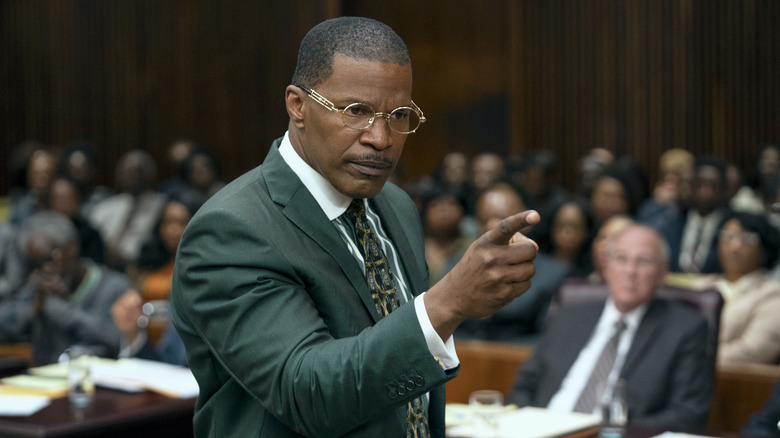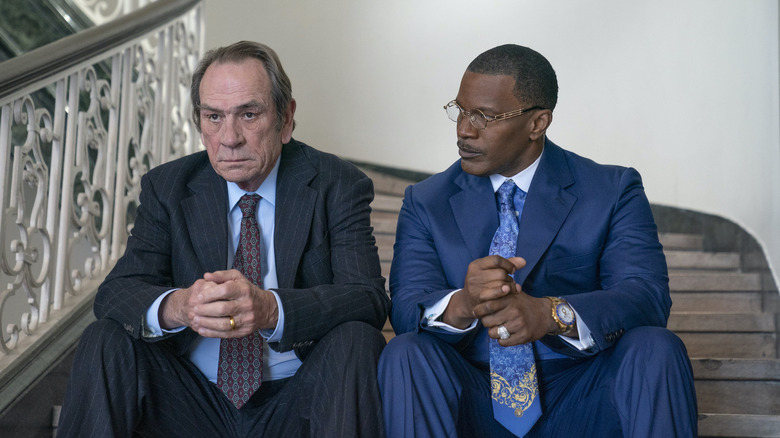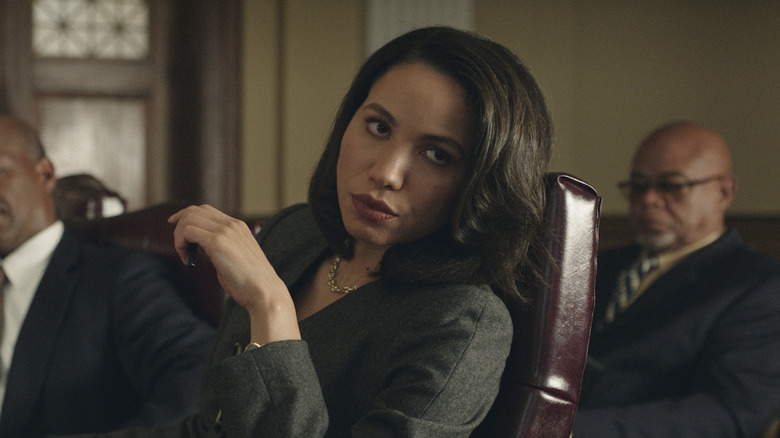The Burial Review: This Courtroom Drama Showcases Jamie Foxx's Best
- Jamie Foxx is wonderful as Willie Gary
- Skillfully addresses race and class dynamics
- The beats of the case and its outcome are predictable
Jamie Foxx has been in a lot of questionable movies lately. While at his height, he starred in stylish big-screen awards contenders like "Ray" and "Django Unchained," recently he's been in a series of streaming movies that have been mostly subpar. "The Burial" at first appears to be more of the same, landing on Prime Video with little promotion after a week's worth of time in limited theaters. But there are a couple of exceptions to this one. First, Foxx plays a more down-to-earth character as the lawyer Willie E. Gary, rather than the vampire hunter of "Day Shift" or the superhero wannabe of "Project Power." Second, Foxx's co-star in this project is Tommy Lee Jones, the curmudgeonly but lovable grump who oozes prestige. "The Burial" is a definite crowd-pleaser with enough good performances and themes like racial and class tensions to keep things interesting, making for a movie that, on average, wins more than it loses.
The story starts with Foxx's Gary in front of a courtroom in 1995. He has a terrible client, and he lets the jury know it, but he also lets them know that his client had a green light when he was run down by one of the defense's trucks. He brings the house down, and Jeremiah O'Keefe (Jones), who happens to be sitting in the courtroom, joins in the clapping.
O'Keefe has a case of his own. He's going to sue the Loewen Group, a large funeral home company headed by Ray Loewen (Bill Camp), who agreed to buy three of O'Keefe's eight funeral homes but hasn't come through on the deal. That's because he knows that O'Keefe's in financial trouble and that if he just waits long enough, he can buy those funeral homes at rock-bottom prices. But the trial between O'Keefe and the Loewen Group is being held in a largely Black county in Mississippi and O'Keefe's lawyer, Mike Allred (Alan Ruck), is white and a bit of a racist. So O'Keefe stops by Gary's office to see if he might be interested in taking on his case. Gary promptly refuses — one, because it's a contract law case and he does personal injury, and two, because O'Keefe's white. But O'Keefe's young associate, Hal (Mamoudou Athie), a lawyer who also happens to be Black, makes the case for him, and suddenly O'Keefe's got himself a deal.
Something extra
What follows includes all the ins and outs of a typical courtroom drama with a little something extra. While the beats of the movie are predictable and the outcome is never in doubt, director Maggie Betts keeps things lively enough that we still want to keep watching.
A lot of the goodwill the movie shores up is due to the greatness of the performance at its center. Jamie Foxx showboats as Willie E. Gary, as the screenplay requires him to, but he also knows when to lay back and let other people shine. It's a tightrope walk, and yet Foxx pulls it off gracefully, showing he can bring subtlety to even the most attention-grabbing roles.
Tommy Lee Jones is more subdued, but even he has a couple of flashy moments, particularly when he's given the opportunity to sing Tony! Toni! Toné! It gives us some insight into what makes this odd-couple pairing work, and that dynamic is what makes this movie really effective. Even when Gary does something that makes O'Keefe replace him as first chair in the trial, he still ultimately wants to win with him. And to his surprise, Gary feels the same way. Despite his best efforts, he starts to feel close to O'Keefe and therefore doesn't want to let him down.
Racial injustice and communal experiences
The dynamic of the two leads works and is helped by the racial injustices at play. While on paper the trial is not about race, in practice, it seems to have everything to do with it — and the fighting between Gary and his opposing counsel, Mame Downes (Jurnee Smollett), a smart Black woman with a flawless education, can get tense. The case is between two white men, yes, but much of what Gary and his associates are arguing has to do with the Loewen Group's business practices, and those practices are horrible, especially when it comes to lower-income Black folks.
Maggie Betts and her co-writer, Doug Wright, who based their screenplay on a "New Yorker" article by Jonathan Harr, are shrewd in the way they broaden the scope of the case. This includes scenes like one in which O'Keefe goes to Florida and bonds with Gary's mother (Summer Selby), and another where Gary and O'Keefe are introduced to a graveyard without headstones because the enslaved people who rest there couldn't afford them. All of this plays into the human element of the film, which Betts, in her sophomore feature after "Novitiate," presents in a straightforward, no-frills manner. But who needs frills when you have Willie E. Gary?
However, I do wonder about people watching this movie at home. In my screening, people were audibly laughing, gasping, and otherwise responding in ways that those watching at home just won't get. That audience response adds something to a film like "The Burial." People watching at home, though — which is primarily the way viewers are going to watch this film — are likely to watch alone or with one or two other people, maybe while looking at their phones or doing their laundry. While it's a tough market in theaters for movies like "The Burial," it's a shame more people can't have a communal experience with this project.
"The Burial" sounds like a serious endeavor, and in parts it is. But the laughs and excitement from my audience assure us that not everything in the film is so serious. While we know the outcome of the trial from the get-go, it's how we get there, and the human drama that accompanies us on the way, that makes this a film worth seeing.
"The Burial" is in limited theaters now and comes to Prime Video on October 13.


